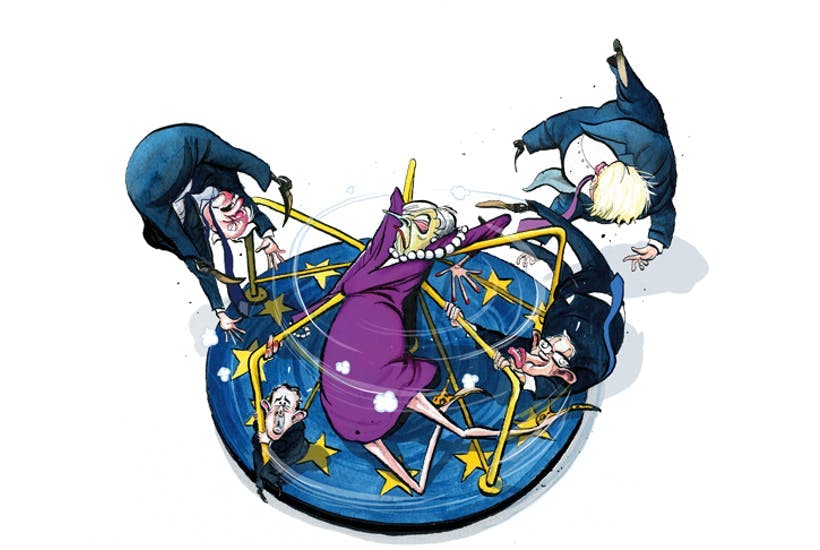Both the Brexit and and Foreign Secretaries have resigned. The Chequers agreement, if that is the right word, looks about as enduring as the latest relationship on Love Island. The Prime Minister is staggering so uncertainly from one option to another that even Donald Trump’s advice over the weekend seemed almost sane. The UK’s strategy for leaving the European Union, insofar as we ever really had one, is in tatters.
Big Business will no doubt respond to that with calls for a softer and softer Brexit simply in the hope of getting something in place before March next year. We will hear a lot about cliff edges, and the dangers of a collapse in the economy. The big guns of the CBI will be wheeled out to plead with the Government to get something in place, and we will hear from Unilever, and Nissan, and Airbus, and the rest of the Project Fear gang, about how anything is better than no deal.
Of course, it is easy to see why they will be doing that. For most companies, anything would seem better than the uncertainty of simply crashing out. But that would be a mistake, not just for the country, but for the companies themselves. In fact, this is the moment to embrace a no deal solution. Here’s why.
First, you can argue about the precise percentages, but ‘crashing out’ must by now be up to a 50 percent probability or even more. We can’t agree on what we are offering the EU, and there is no reason to imagine they will accept it anyway. If this was a negotiation to buy a house, even the most wildly over-optimistic estate agent would have to accept it wasn’t going terribly well. If it is fairly likely to happen, you might as well start preparing for it.
Next, preparing for no deal makes it more likely that some kind of compromise is worked out. In truth, the EU would prefer that we didn’t crash out without a deal as well. The hit to their industries won’t be as catastrophic as the more swivel-eyed Brexiteers sometimes imagine but it will still hurt. Paradoxically, the more British business embraces ‘no deal’ the less likely it is to happen – which is what they actually want anyway.
Finally, it will be better for morale. The UK economy will pull through a ‘crash-out’ exit. Businesses have suffered worse disruption, and will find a way to cope, as they do with most things. But it will be a nerve-jangling ride for a few months while the dust settles. It will take a lot of self-confidence to get through next March with no deal in place. The more you talk it up, and reassure staff, suppliers and customers that it is all going to be okay, the more likely it is to actually work.
Almost all major businesses in this country would have liked to stay in the EU, or else to work out a decent deal for our departure if it had to happened. That isn’t the way it has worked out, however. The only real strategy now is to get behind the no deal option – and try to make it work.






Comments